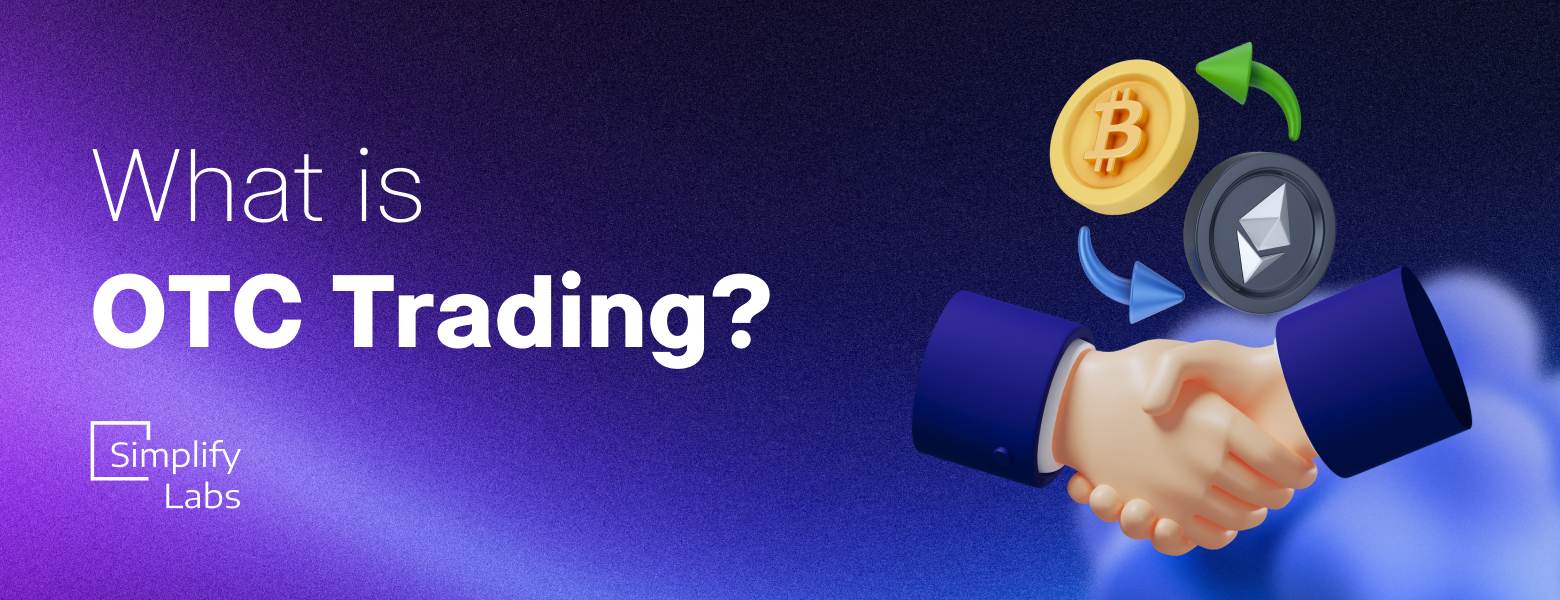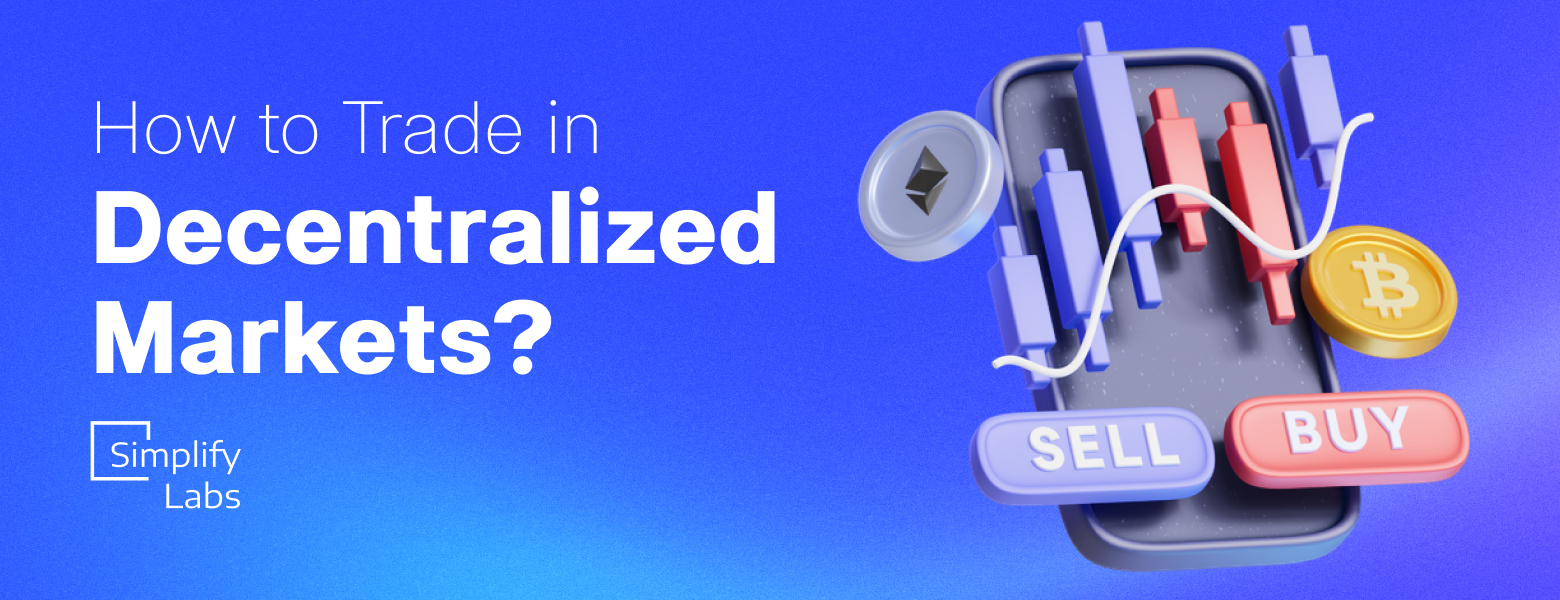In 2023, OTC trading volumes surged, particularly in cryptocurrency and non-standard asset markets, where more than $2.5 trillion worth of digital assets were exchanged via decentralized OTC networksthod of trading bypasses traditional centralized exchanges, allowing transactions to occur directly between buyers and sellers through a network of brokers or intermediaries.
OTC trading offers increased flexibility, accommodating a wide range of financial instruments, from stocks of smaller companies to cryptocurrencies and complex derivatives.
This article delves into the fundamentals of OTC trading, how it operates, the advantages and disadvantages, and the various securities traded in the OTC market.
How OTC Trading Works
Over-the-counter (OTC) trading refers to the process of buying and selling financial instruments directly between two parties, without using centralized exchanges like the New York Stock Exchange (NYSE) or NASDAQ. This type of trading is conducted through decentralized networks of brokers or dealers, allowing for the exchange of securities, commodities, derivatives, or cryptocurrencies in a more flexible, private, and customizable manner.
The decentralization of OTC trading is particularly relevant in the context of cryptocurrency markets. For instance, OTC crypto trades accounted for over $1.5 trillion in 2023, catering to institutional investors looking to transact large volumes without affecting the often volatile exchange prices. Since there are no centralized exchanges involved, OTC transactions rely heavily on trust between parties and the brokers facilitating the trade. This decentralized structure allows for more liquidity in illiquid markets and accommodates custom trades, but it also introduces higher counterparty risks and lower regulatory oversight compared to exchange-based trading.
Advantages and Disadvantages of OTC Trading
OTC trading offers a unique set of benefits and challenges that appeal to different types of investors, particularly those looking for flexibility in trading non-standard assets or seeking privacy for large transactions.
| Advantages | Disadvantages |
| Flexibility in Negotiation: OTC trades allow for customized agreements on price, volume, and terms, which is especially useful for large or non-standard transactions. | Lower Liquidity: Many OTC assets, especially stocks of smaller companies, may have lower liquidity, making it difficult to buy or sell large quantities quickly. |
| Access to Non-Listed Assets: Investors can trade securities not listed on traditional exchanges, including smaller companies’ stocks, derivatives, and cryptocurrencies. | Higher Counterparty Risk: Without centralized clearinghouses, the risk of the counterparty defaulting on the agreement is higher. |
| Privacy and Anonymity: Large trades can be conducted privately without impacting market prices, which is attractive to institutional investors. | Less Regulatory Oversight: OTC markets are subject to fewer regulations compared to centralized exchanges, increasing the risk of fraud or manipulation. |
| Opportunity for Non-Standard Assets: OTC markets accommodate assets that are typically not available on centralized exchanges, allowing for more diverse investment opportunities. | Opaque Pricing: With no centralized exchange to provide a reference, prices can vary significantly, and lack of transparency can be an issue. |
Types of Securities Traded on the OTC Market
The OTC market offers a wide range of financial instruments, allowing investors to trade securities that are not listed on major exchanges. These include stocks, bonds, derivatives, and increasingly, cryptocurrencies.
Here are the main types of securities traded on the OTC market:
Stocks
Stocks of smaller companies, foreign firms, or those that don’t meet the listing requirements of major exchanges are commonly traded on the OTC market. These stocks are often categorized into tiers, such as OTCQX (the highest-quality OTC stocks), OTCQB (venture market stocks), and Pink Open Market (the most speculative stocks, often with less disclosure).
Bonds
Bonds, especially those issued by smaller governments or corporations, are frequently traded over-the-counter. Since bond trading is typically conducted through dealer networks, OTC platforms are ideal for these transactions, providing a direct market between buyers and sellers without needing a centralized exchange.
Derivatives
Derivatives like futures, forwards, and swaps are commonly traded on the OTC market. These instruments allow parties to hedge risks or speculate on price movements without the standardization of exchange-listed derivatives. The flexibility of OTC derivatives, such as customized contracts, makes them attractive for complex or large-scale transactions.
Cryptocurrencies
Cryptocurrencies like Bitcoin and Ethereum are increasingly traded OTC, particularly by institutional investors looking to execute large transactions without impacting the volatile prices on centralized crypto exchanges. OTC desks provide deeper liquidity for large-scale trades and offer more privacy compared to public crypto exchanges.
Comparison of OTC Trading and Direct Market Access (DMA)
OTC trading and Direct Market Access (DMA) represent two distinct approaches to executing trades in financial markets. OTC trading involves transactions conducted directly between two parties, often through brokers or intermediaries, bypassing traditional exchanges. This decentralized model allows for greater flexibility in terms of price and contract customization, making it ideal for non-standard or large transactions. However, since OTC trades are private and off-exchange, they often have less transparency and are subject to lower levels of regulation, increasing the risks of counterparty default and market manipulation.
In contrast, DMA allows investors, typically institutions, to execute trades directly on exchange order books without intermediaries. This provides greater control over order execution, including the ability to manage market timing and pricing, and it occurs within a more regulated framework. DMA participants have real-time access to market data and benefit from exchange transparency and regulatory oversight.
Regulation and Security of OTC Trading
The regulatory environment of OTC trading is less stringent compared to exchange-based trading, but it still operates under specific frameworks designed to ensure some level of oversight and investor protection. In the United States, the Securities and Exchange Commission (SEC) plays a crucial role in overseeing the OTC market, particularly through its regulation of broker-dealers and reporting requirements for companies that trade on the OTC markets. For example, companies listed on higher-tier OTC markets, such as OTCQX or OTCQB, are required to adhere to stricter financial disclosure and governance rules, though these standards are still less comprehensive than those applied to publicly listed companies on major exchanges like the NYSE or NASDAQ. The Financial Industry Regulatory Authority (FINRA) also monitors OTC brokers to ensure they comply with anti-fraud and investor protection laws.
In terms of security, OTC trading involves higher risks due to lower liquidity, reduced transparency, and the absence of a centralized clearinghouse. These factors increase the potential for price manipulation and fraud, particularly in lower-tier OTC markets like the Pink Sheets, where reporting standards are minimal. To mitigate some of these risks, investors should conduct due diligence by carefully vetting brokers, reviewing company financials when available, and understanding the specific risks of the securities they are trading. For institutional investors trading OTC derivatives or cryptocurrencies, additional security measures include counterparty risk management and the use of secure OTC desks with strong reputations. Nonetheless, the absence of exchange-level safeguards in OTC trading places a greater responsibility on individual traders and institutions to assess and manage their own risks.
How to Start Trading on the OTC Market
Starting to trade on the OTC market requires careful preparation and understanding of the unique characteristics and risks involved. Unlike traditional exchanges, OTC trading involves working directly with brokers or dealers, making it essential to follow a structured approach to ensure successful and secure transactions.
Here is a step-by-step guide to help you start trading on the OTC market:
- Choose a Reliable Broker. Selecting the right broker is crucial in OTC trading, as they facilitate the transactions between buyers and sellers. Look for brokers who are registered with regulatory bodies like the SEC or FINRA and have experience in OTC markets. Reputable brokers will also provide necessary disclosures and protect your interests during transactions.
- Open a Trading Account. Once you’ve chosen a broker, open an OTC trading account. Depending on the broker, you may need to provide identification and verify your financial status. Some brokers may also require a minimum deposit to get started, so review the account options and requirements carefully.
- Study the Market and Securities. Before making any trades, take time to research the OTC market and the securities you’re interested in. This includes analyzing the financial health of companies, understanding liquidity levels, and identifying potential risks. Due diligence is especially important for OTC securities, as they tend to have lower regulatory oversight.
- Understand the Risks. OTC markets carry higher risks than traditional exchanges. Be aware of the counterparty risks, lower liquidity, and potential for price manipulation. Make sure you fully understand these risks and incorporate them into your trading strategy.
- Execute Your First Trade. Once your account is set up and you’ve done your research, you’re ready to execute your first trade. Work with your broker to place an order based on the security you want to buy or sell. Be sure to negotiate favorable terms, as OTC trading allows for price flexibility and customization.
OTC Trading: A World of Flexibility, but with Caution
OTC trading opens up a world of possibilities for investors seeking more flexibility and access to a wider range of assets, from smaller company stocks to cryptocurrencies. Unlike traditional exchanges, the OTC market allows for customized deals and private transactions, which can be especially appealing for larger trades. However, this freedom comes with responsibility — investors need to be aware of the potential risks, including lower liquidity and less regulatory protection.






